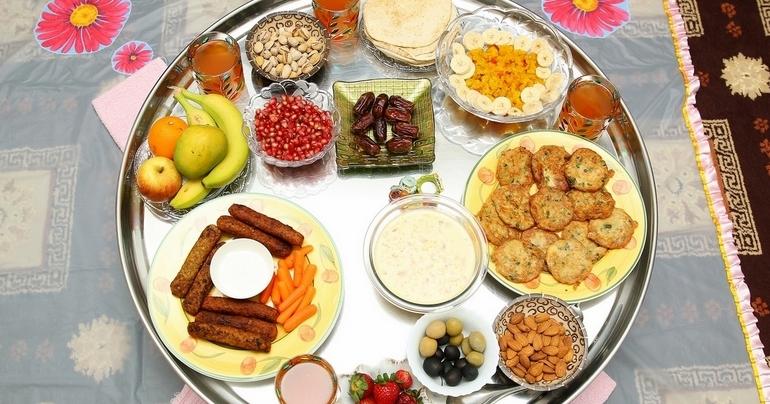How to eat right and keep well during Ramadan
Swapping fried food for grilled goodness, ditching samosas, swerving sugar and salt, and spending nights drinking as much water as possible could help millions of fasting people across the globe tackle the challenges of Ramadan.
Students and academics at Birmingham City University in the UK have come up with a guide which aims to help people observing the month of Ramadan to make sure they eat right and look after their systems.
Academics and students on the University’s Sport and Exercise and Nutrition courses, including Dr Huda Al-Kateb, Dr Matt Cole and PhD researcher Ayaz Safi, have written up a guide featuring tips on nutrition, hydration and exercise to help people fasting for Ramadan to keep to a regular routine as much as possible.
The points were written up based on analysis of the common foods consumed during the month, along with reflection on what foods are best at providing sufficient energy throughout the day. The experts have also featured advice on energy and activity to support wellbeing.
The experts have written up a guide on tips for things to try out, avoid or swap for the month to look after the body:
• Water, water and more water during night time hours – Experts advise to drink as much water as possible during Iftar and Suhoor times, especially if hot weather is expected during the day.
• Learn the importance of balance – When fasting your body is deprived of nutrients that your system needs. The experts emphasise that it is so important to make sure that when you can eat, you keep your meals balanced so that you feed your system enough nutrients from each group.
• Think about the alternatives – Swap deep frying for grilling, baking or shallow frying and swap heavier foods for lighter alternatives. For example, swap cake and chocolate for fruit and yoghurt.
•Fitness and fasting can work together – Gym enthusiasts can stick to their routine of working out every day. Light exercises are great to keep blood flowing and the system working. Cardio exercises are also fine to do when fasting as long as you don’t overdo it.
• Excess salt causes extreme thirst during the day – Experts say that meals with high salt are not ideal to eat during night time hours because they can cause thirstiness during the day and is best to be avoided.
• Keep energised without water or snacks – Experts advise that there are small things you can try each day to keep you alert and maintain your energy. Things like taking small breaks from revision or work and going on small walks, writing daily to-do lists or listing what you’re finding difficult and working on combating these, and planning meals to make sure you’re eating the rights things to get good energy levels can all have a bit impact.
Share This Post






